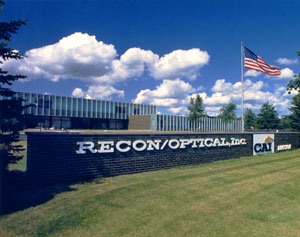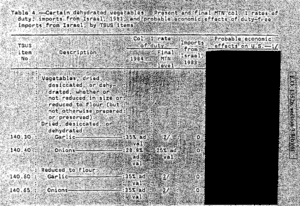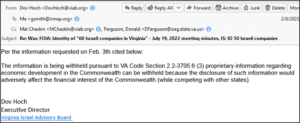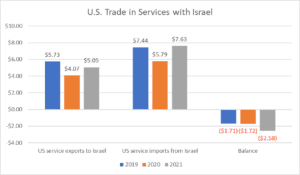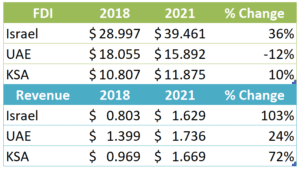Apollonian
Guest Columnist
Israel’s Decades of Economic Espionage in the United States
Link: https://israelpalestinenews.org/israels-decades-of-economic-espionage-in-the-united-states/Alison Weir October 8, 2021 Bradley fighting vehicle, Dimona, espionage, f-16, Israeli nuclear program, Israeli spying, ofek, ofeq, Silicon Valley, Zalman Shapiro


An Israeli Ofek (Ofeq) spy satellite is launched into space from a site in central Israel. Few people know that Israel had stolen key technology for Ofek from a US company, Recon/Optical. After Recon's security guards caught three Israeli air force officers stealing 50,000 pages of technical documents, an arbitration panel eventually ordered Israel to pay Recon $3 million in damages for what it found to be “perfidious” illegal acts. (PHOTO:cgtn)
Israel, which receives billions of dollars from the United States, has conducted espionage in the U.S. – especially economic espionage – since its creation in 1948.
The illegal behavior includes fraudulent diversion of U.S. foreign aid, illicit retransfer of sensitive U.S. technologies to third parties, and violation of end-use restrictions on U.S. military items transferred to Israel.
According to the U.S. intelligence community, Israel’s motivations appear to be threefold: to strengthen its industrial base, to sell/trade the information to/with other countries (especially China) for profit, and to sell/trade the information to/with other countries to develop favorable political ties and alternative sources of arms and intelligence.
To these, a fourth factor might be added: the certain knowledge that, in the words of a senior former U.S. intelligence official, “Israel can steal right and left, but we will still pump money in.”
Israel is the only country whose defense industry is heavily subsidized by the United States.
No foreign country has a more effective informational network inside the executive and, especially, legislative branches of the U.S. government…
By Duncan L. Clarke, reposted from Journal of Palestine Studies, Vol. 27, No. 4 (Summer, 1998), pp. 20-35 (Images added by IAK)ISRAEL HAS CONDUCTED ESPIONAGE in the United States, especially economic espionage, [1] since its creation in 1948. [2] This espionage principally targets military and dual use items (goods and technology with civilian and military uses) and furthers strategic as well as economic objectives. This article examines the scope and nature of this activity, its distinctiveness, its apparent benefits and costs for Israel, and the U.S. response.
In one sense, Israel is hardly unique: it is just one of the dozen countries identified by the National Counterintelligence Center (NACIC) as active against U.S. interests. [3] Israeli operations are reflective of the larger global phenomenon of economic espionage. Like more than half of these countries, Israel is a U.S. ally whose intelligence and armed services work closely with U.S. counterparts. Like most of the twelve, Israel’s defense firms are closely tied to the state and compete actively with American firms. Like South Korea and Taiwan, Israel has sought to exploit potentially sympathetic American ethnic groups. Like Iran and China, Israel has employed economic espionage to advance a nuclear weapons program and the means to deliver such weapons. Like China and Russia, its political-strategic intelligence collection in the United States appears to be ongoing, often merging imperceptibly with its economic collection.
Yet Israeli espionage against the United States is also distinctive. No other country is more frequently said to have a unique “special relationship” with the United States. No ally’s security, even survival, is more reliant on U.S. intelligence. No other ally on the list receives U.S. foreign aid. Few countries’ defense industries and infrastructures are more dependent on close, cooperative ties with the United States. No other country has a more intimate grasp of the American political system, and no country receives more reliable political protection from Congress. Finally, while allegations of “dual loyalty” are not confined to American citizens supportive of Israel, that explosive charge is particularly disturbing here.
CONSTANCY OF ISRAELI ECONOMIC ESPIONAGE
With the cooperation of some American Jews, Israeli espionage in the United States was underway throughout the late 1940s and early 1950s. [4] A far more concerted, systematic effort to collect scientific and technical information was initiated in 1960 when Israel’s Defense Ministry created what was to evolve into its). [5] LAKAM soon became a technical penetration and acquisition network designed to strengthen Israel’s defense industry [6] by giving top priority, according to a CIA report, to “the collection of scientific intelligence in the U.S.” [7]
During the cold war, says John Davitt, former head of the Justice Department’s internal security section, U.S. counterespionage specialists “regarded Israel as being the second most active foreign intelligence service in the United States.” [8] When in 1996 the CIA finally exposed Israel (and France) publicly for being “extensively engaged in espionage,” [9] the U.S. General Accounting Office (GAO) also issued a report stating that Israel “conducts the most aggressive espionage operations against the United States of any ally…. [It] routinely resorts to state-sponsored espionage [to steal] classified military information and sensitive military technology [and] sensitive U.S. economic information.” [10]
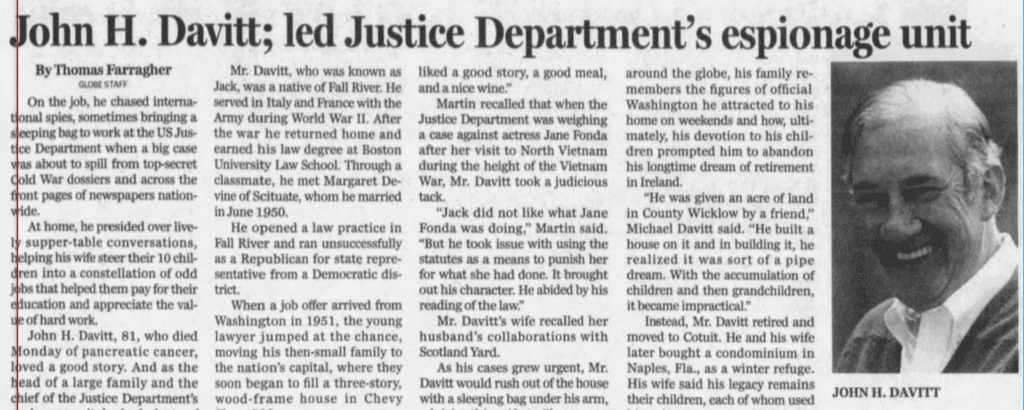

No foreign country has a more effective informational network inside the executive and, especially, legislative branches of the U.S. government. [11] It appears that several units within Israel’s intelligence community are engaged in economic espionage. [12] They include Israel’s foreign intelligence service (Mossad) and a new organization within the Defense Ministry – the Security Authority (Malmab). [13]
According to the U.S. intelligence community, Israel’s motivations appear to be threefold: to strengthen its industrial base, to sell/trade the information to/with other countries (especially China) for profit, and to sell/trade the information to/with other countries to develop favorable political ties and alternative sources of arms and intelligence. [14] To these, a fourth factor might be added: the certain knowledge that, in the words of a senior former U.S. intelligence official, “Israel can steal right and left, but we will still pump money in.” [15]
The United States and Israel agreed in 1951 not to spy on one another. [16] There is little evidence that the United States has conducted economic espionage against Israel, [17] but the agreement has been flouted repeatedly and flagrantly by Israel. Israeli economic espionage has infuriated the U.S. intelligence community, especially the FBI and the Customs Service, and has left a legacy of distrust in that community. [18] Still, such espionage does not have the same impact as attempts to penetrate the national security bureaucracy, as in the notorious 1985 Jonathan Pollard case, which strained diplomatic relations and disrupted intelligence cooperation for some time. [19] Economic espionage, on the other hand, has not significantly affected strategic cooperation, including the sharing of intelligence. Indeed, U.S.-Israel strategic ties are closer today than ever before. Among other things, since the U.S.-Israel Counterterrorism Accord was signed in 1996, the United States has continued to preposition munitions in Israel, and financial aid to Israel for counterterrorism and ballistic missile defense increased. [20]
SPECIFIC TARGETS OF ECONOMIC ESPIONAGE
Israeli Defense Industrial Base
Israel maintains a strong defense industrial base. Both the quality of Israel’s arsenal and the competitiveness of its armaments industry are enhanced by economic espionage.Representative targets of Israeli economic espionage have included: U.S. technology for artillery gun tubes, coatings for missile reentry vehicles, avionics, missile telemetry, and aircraft communications systems. [21] One particularly notorious case concerned Recon/Optical, an Illinois firm producing state-of-the-art aerial surveillance equipment for the Pentagon and the U.S. intelligence community. In 1986, Recon’s security guards caught three Israeli air force officers stealing 50,000 pages of technical documents relating to the company’s proprietary information. For at least a year, these officers had been exploiting contractually provided visitation rights and passing Recon’s documents to a competing Israeli firm, El Op Electro-Optics Industries. An arbitration panel eventually ordered Israel to pay Recon $3 million in damages for what it found to be “perfidious” illegal acts. [22] Nonetheless, Recon suffered grievous damage and barely escaped bankruptcy. The optics technology stolen from Recon apparently provided critical elements of Ofek-3, Israel’s first durable reconnaissance satellite. [23]
There were other troubling episodes throughout the 1980s. For example, in the early 1980s some Israelis were caught illicitly taking classified blueprints of the F-16 fighter out of the General Dynamics plant in Fort Worth, Texas. A separate facility was then set up outside the plant for the Israelis (who were awaiting delivery of about fifty-five F-16s). [24]


In another case, the Customs Service intercepted Israeli agents who were suspected of plotting to export U.S. cluster bomb technology to Israel. In 1982, the Reagan administration had banned the export of such weapons to Israel when Israel violated, during its war on Lebanon that year, its end-use agreement with the United States not to employ cluster weapons against civilians. Although there was abundant evidence of intentional wrongdoing, the State Department prevailed on the Justice Department not to prosecute. [25]
A third case involved NAPCO, Inc., a Connecticut company. NAPCO worked with Israeli agents to illegally export sensitive new technology for chrome plating the inside of 120mm tank barrels. Indeed, U.S. foreign aid paid for building a plant in Israel to utilize this process. NAPCO pleaded guilty to violating U.S. export law and was fined $750,000. No Israelis were prosecuted. [26]

In other cases, the Justice Department charged an executive of the Science Applications International Corporation with illegally transferring missile defense technology to Israel by “dealing with the highest levels of the military … in Israel,” [27] and Israel improperly acquired U.S. RPV (remotely piloted vehicles) technology, allowing the Israeli company Mazlot to underbid its American competitors. [28]
Public U.S. government reports, including the 1996 GAO report and the 1997 NACIC annual report to Congress alluded to above, suggest that the problem has worsened since the end of the cold war. For instance, a 1997 FBI affidavit revealed that David Tenenbaum, a civilian with the U.S. Army Tank Automotive and Armaments Command (TACOM), admitted giving “nonreleaseable classified information to every Israeli liaison officer assigned to TACOM over the last 10 years.” [29] This included classified data on theater missile defense systems, the Bradley fighting vehicle, ceramic armor, and other weapons systems. [30]


These technologies are necessary to meet what General Matan Vilnai, deputy chief of Israel’s defense staff, says are Israel’s “operational environments,” particularly resisting a Syrian armor attack and countering an over-the-horizon missile attack. [31] Tenenbaum also appears to have furthered Israel’s commercial interests as the Israeli company Elbit now offers upgrades of the U.S. army’s Bradley fighting vehicle, Israeli companies have long been involved in ceramic designs for tanks, and Israel approached the United States in 1997 about selling its forthcoming Arrow theater missile defense system to Turkey.
Fraud and the Israeli Purchasing Mission
Israeli economic espionage is sometimes associated with two often interrelated factors: the fraudulent acts committed by Israeli officials in the United States and the activities of the Israeli Purchasing Mission in New York.Concerning the former, Israeli general Rami Dotan was convicted by an Israeli court in 1991 for conspiring with an executive of the General Electric Company, Herbert Steindler, to illegally divert $40 million of U.S. military assistance. [32] Steindler, Dotan, and another person were indicted by a U.S. federal court in 1994 for the same offense. [33] Many of these fraudulent practices were taken at the express direction of senior Israeli defense officials, possibly at the highest levels. [34] A 1992 memorandum from the Justice Department to Secretary of Defense Dick Cheney stated that these fraudulent diversions of U.S. aid may have been intended to “finance Israeli intelligence operations … in the United States.” [35] Investigators for the House Energy and Commerce Committee concurred, and a knowledgeable congressional source said that “Dotan was continuing a fraudulent diversion of military aid that had been going on before he ever arrived on the scene.” [36]


The Israeli Purchasing Mission was established in 1952, well before the United States became Israel’s principal arms supplier. It is run by Israeli military officers and defense officials with a staff of about two hundred (many of whom are Israeli college students). The Purchasing Mission is Israel’s locus of coordination with the U.S. defense industry, and it draws from the $1.8 billion of annual U.S. military aid to buy defense goods and services in the United States. [The aid is now $3.8 billion] It awards contracts to U.S. firms and obtains export licenses from the Departments of State and Commerce for shipments to Israel. It has liaison officers at many defense plants, sites, and installations in the United States and is accredited to additional U.S. defense facilities. Mission personnel are often aware of evolving new technologies long before key officials in Washington, thus enhancing opportunities for evading export controls. [37]
The unusual access to U.S. firms facilitates economic espionage, as do Israel’s unique arrangements for paying U.S. companies. For other countries that use U.S. military aid to buy defense goods in the United States, the government disburses funds directly to American companies, thereby enhancing oversight. For Israel, however, the Purchasing Mission pays the companies and is then reimbursed by the U.S. Treasury. This, plus other relaxed rules for Israel’s use of U.S. military aid and the presence of many retired Israeli generals and defense officials in American firms seeking business from the Mission, sharply degrades U.S. monitoring of Mission expenditures and activities. This invites the kind of fraud and/or espionage that variously involved Mission personnel in the Dotan affair and the NAPCO, Recon, and cluster bomb cases. [38] When the Justice Department sought to move against some Purchasing Mission personnel for recurring involvement in illegal technology acquisition, Israel requested – and in 1988 received from the State Department – limited diplomatic immunity for most of its professional staff. [39]
Nuclear Weapons and Means of Delivery
Although evidence remains officially inconclusive, there is a “widespread belief” in the CIA and elsewhere within the U.S. intelligence community that in the 1960s Israeli intelligence spirited about two hundred pounds of weapons-grade uranium from the Nuclear Materials and Equipment Corporation (NUMEC) in Apollo, Pennsylvania. [40] John Hadden, a former CIA station chief in Tel Aviv, states that NUMEC was an “Israeli operation from the beginning.” [41]This private corporation was owned by Zalman Mordecai Shapiro, an active member of the Zionist Organization of America, who had close ties to Israel. These ties and Shapiro’s activities convinced the FBI and CIA that he had helped Israeli agents smuggle the material out the United States to Israel, where it provided fuel for the first four nuclear devices assembled at Dimona. [42] The NUMEC case was investigated by the GAO and the House Interior Committee in 1978, but their reports have never been declassified. Indeed, the political sensitivity of the issue led President Lyndon Johnson and successive administrations to bury various intelligence reports on the NUMEC affair. [43]
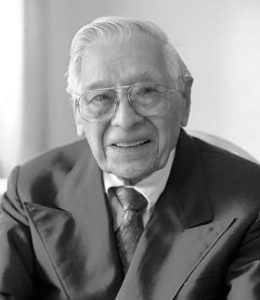

Another case arose in May 1985 when Richard Smyth, an American Jew, was charged by a federal grand jury with smuggling 810 krytons to Israel. Krytons can act as electronic triggers for nuclear weapons. Smyth was released on $100,000 bail and failed to appear for trial. He was later seen in Israel. [44] This was a premeditated act of nuclear weapons-related espionage by Israel. [45] Espionage was only one reason for Israel’s successful drive for nuclear weapons. A sophisticated scientific base, early assistance from France on the Dimona reactor, the financial role of individual Jewish Americans, and covert cooperation with South Africa were important factors. [46] Yet espionage got Israeli scientists and engineers past crucial roadblocks, such as the acquisition of weapons-grade uranium and krytons.


This is a potentially serious problem, given close cooperation between the Israeli and U.S. defense scientific communities on projects such as the Arrow missile. Scores of Israeli scientists visited U.S. nuclear weapons laboratories at Sandia, Los Alamos, and Livermore. Israeli visitors were often treated more openly than others. [49] During just one twenty-month period in the late 1980s, 188 Israeli scientists visited these three labs. [50] Most of the visits were under the auspices of U.S.-Israel cooperation agreements, especially one for the study of nuclear physics and fusion; opportunities for inappropriate behavior were considerable. The GAO has highlighted the need to improve security with respect to foreign visitations of U.S. defense facilities. [51]

Israeli nuclear – and weapons of mass destruction – related espionage has an important economic dimension. As Israel’s nuclear doctrine and posture become more elaborate – and require the integration of command and control systems with satellite imagery – access to new developments in software and computer technology is crucial. [52] The acquisition of these technologies, through licit and illicit means, has a valuable spinoff effect for the civilian economy.
DUAL LOYALTY
The issue of dual loyalty, though not assuming the dimensions it does in cases threatening national security such as the Pollard affair, has also figured in economic espionage. For example, the 1997 case of David Tenenbaum (discussed above), a religious Jew fluent in Hebrew, instantly concerned many in the Jewish community. [53]The issue of dual loyalty also arose during a 1996 effort to draft legislation to strengthen trade secrets protection. As part of an effort to increase awareness of economic espionage throughout the intelligence community, the Defense Investigative Service (DIS) prepared a profile of Israel. After noting Israel’s “voracious appetite” for information on U.S. defense technologies, the DIS profile stated that Israel’s “very productive collection effort” in the United States was facilitated by “ethnic targeting” and “the strong ethnic ties to Israel present in the U.S.” [54]
Abraham Foxman of the Anti-Defamation League obtained a copy of the profile and wrote Secretary of Defense William Perry asserting that it “borders on anti-Semitism.” [55] Senator Arlen Specter (R-PA), chairman of the Senate Select Committee on Intelligence, also wrote to Secretary Perry, and Specter’s staff met with Defense Department officials. The Defense Department responded: “While the Israelis may have . . . attempted to exploit ethnic and religious ties with Jewish Americans, it does not follow that these Americans are necessarily any more susceptible to external exploitation than any other . . . American citizens.” [56]
Virtually no one, including Senator Specter, denies the reality of ethnic targeting by foreign intelligence services. Israel has employed this technique repeatedly, [57] as have China, Taiwan, and South Korea. [58] Indeed, instances of improper ties between Israel and some American Jews-ties that contribute to perceptions of dual loyalty-date from the earliest days of the Jewish state. [59] The FBI and CIA have long been aware of such ties. For instance, a 1979 CIA report stated: Israel’s intelligence “depends heavily on various Jewish communities and organizations abroad for recruiting agents and eliciting informants,” and, “a substantial effort is made to appeal to Jewish racial [sic] or religious proclivities.” [60]
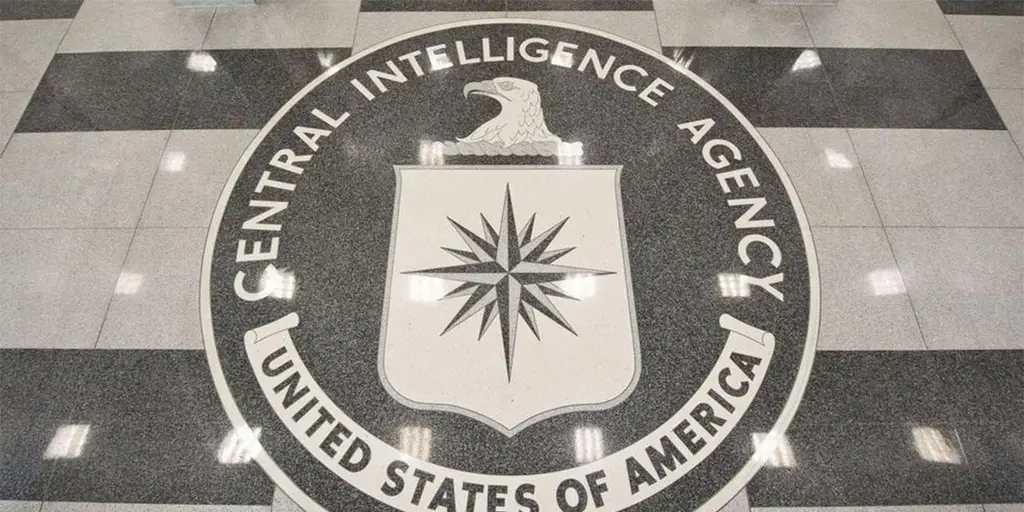
The American Jewish community is rightly concerned that allegations (or insinuations) about the dual loyalty of some citizens could cast aspersions on the patriotism of Jewish Americans. [61] A 1987 CBS News/New York Times poll indicated that fully 33 percent of the general public believed American Jews placed the interests of Israel above those of the United States; this figure was 35 percent in a 1992 poll by the Anti-Defamation League of B’nai B’rith. [62] These findings, which have been consistent over the past thirty years, also indicate that another 20 percent of Americans say they do not know where Jews’ loyalties lie. [63]
In practice, of course, Jews serve in considerable numbers and at the highest levels of the American national security establishment; only very rarely does this issue arise in individual cases. Yet Israel seems insensitive to the damaging effects its illegal acts may have on Diaspora Jews. Former Reagan administration Pentagon official Dov Zakheim, an Orthodox rabbi, states flatly that Israel’s conduct is responsible for it being viewed as an intelligence threat by the Department of Defense: “This is not an American problem, but an Israeli problem.” [64] Zakheim also cautions fellow Jews “not to play the card” of anti-Semitism when the U.S. government takes reasonable measures to counter Israeli intelligence activities. [65] In this area, as in so many others, the maintenance of a free and open multiethnic society requires that a balance be struck between guarding against sweeping, McCarthy-like allegations and implementing prudent security measures. [66]

